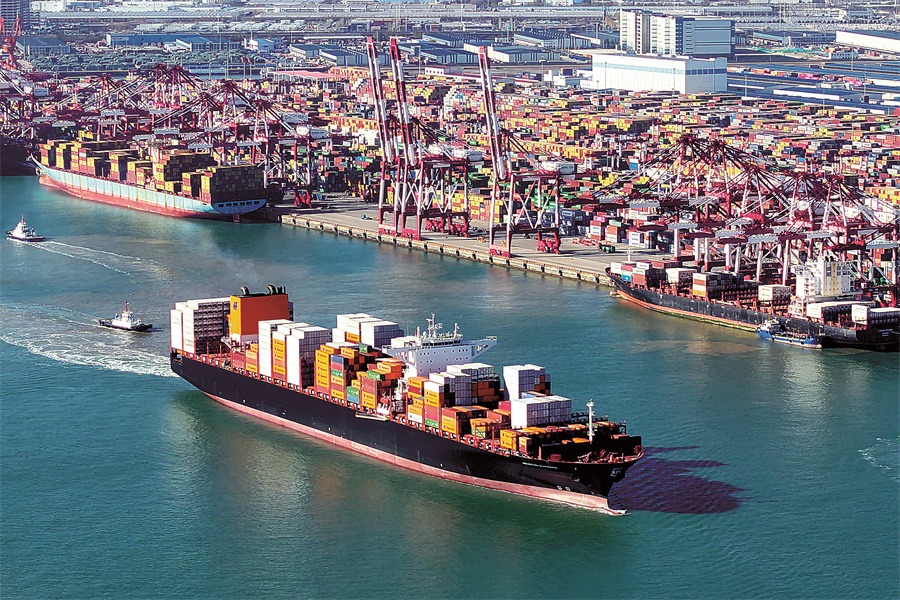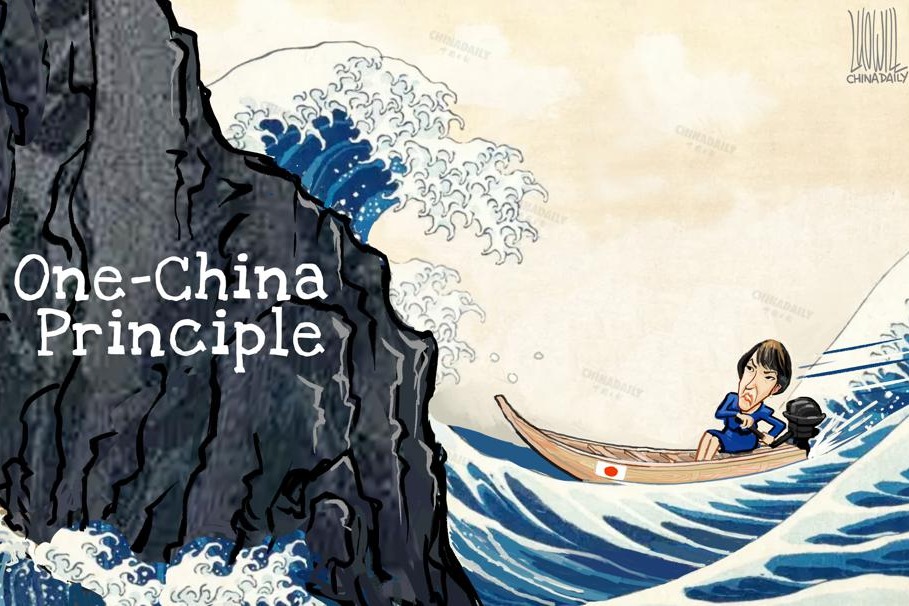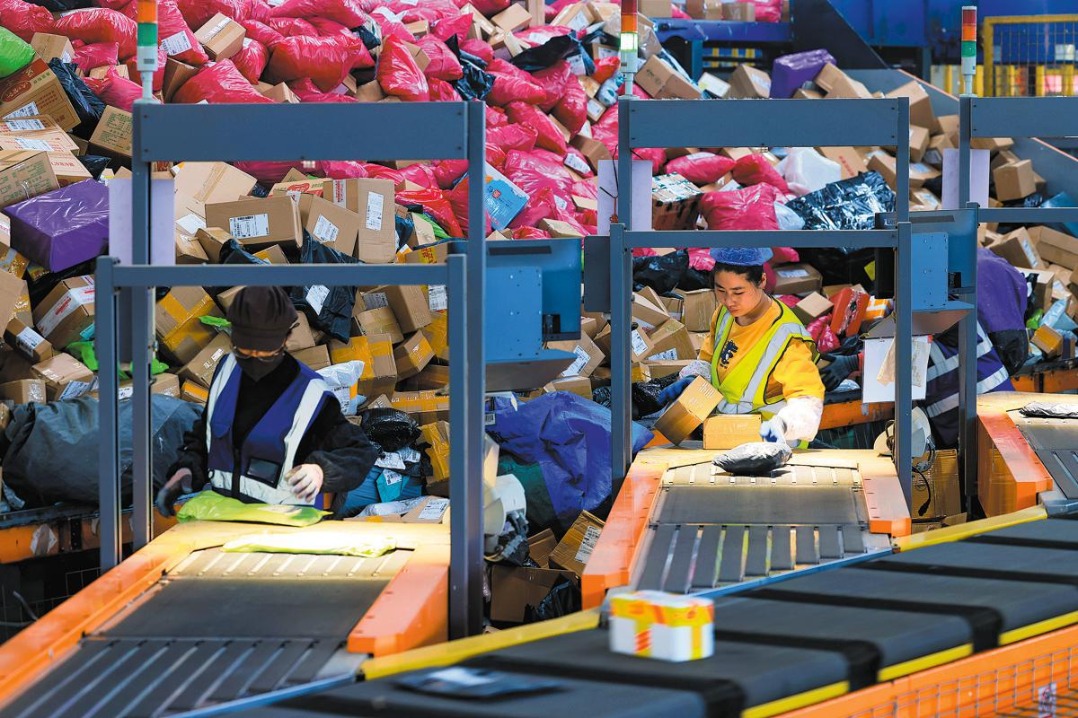Made to order
Rise and fall of manufacturing in major economies propel the evolution of international economic order


History shows that adjustments in the international economic order are closely related to the rise and fall of manufacturing in leading economies. Manufacturing capabilities have an impact on the structural power of those economies, which consequently influences their interests in different international orders.
When manufacturing is on the rise, major economies tend to promote a mercantilist international economic order to protect their growing industries. When manufacturing matures, major economies shift the focus to trade liberalization to secure raw materials and markets. When manufacturing declines and investment in it yields no profit, major economies with surplus capital are more inclined to drive financial liberalization. That is how the international economic order is shifted with the changes of the manufacturing sectors in major economies.
As they progressed through stages of the manufacturing life cycle, both the United Kingdom and the United States promoted different international economic orders, from mercantilism to trade liberalization and financial liberalization.
Since the 1970s, the US has been experiencing a wave of "deindustrialization" and gradually relocating low value-added industries, such as processing and manufacturing, overseas. The share of manufacturing in the economy and employment has continued to drop.
Meanwhile, the finance industry started to rise. In the 1950s, the financial services sector in the US accounted for 2.8 percent of the country's GDP. In the late 1980s, it accounted for 26 percent of total corporate profits, and by 2001, this share reached 46 percent. The US' big companies earned huge profits but used only a small portion for domestic investment. Forty-one percent of the profits were distributed as dividends and 53 percent were used to buy back company stocks.
While manufacturing relies on the real economy, the finance sector leans to the virtual economy and overseas markets. Therefore, the US started to promote a neoliberal international order, centered on liberalization, privatization and deregulation. As the neoliberal movement advanced, foreign capital continued to flow into the US financial markets, bringing significant benefits to the country.
However, the decline of US manufacturing and the rise of its finance industry has led to intensifying unilateralism and protectionism, which has heavily impacted multilateralism and the multilateral trading system.
First, the decline of manufacturing has made the US a source of disruptions to the current international economic order. In world politics, the US is now a major power in finance rather than in manufacturing. With a different set of national interests, its attitude toward the current order has also changed. The so-called rules-based international order and liberal international order are only pretexts for confronting other countries. The US has single-handedly obstructed the operation of the World Trade Organization's core mechanisms, continuously weakening the core values of free trade and multilateralism.
Once a supporter of mercantilism as well as trade and financial liberalization, the US is now the largest force promoting protectionism and unilateralism due to its declining manufacturing sector. In the foreseeable future, if the US cannot steer its manufacturing sector out of trouble, it is likely to continue disrupting the existing international economic order, particularly the free trade order.
Second, under the neoliberal order, the prospect of reviving US manufacturing is bleak due to the country's adherence to the financial liberalization dogma. As the US weakens the trade liberalization order, it has been actively building a financial liberalization order.
Since 2016, the US government has made "revitalizing manufacturing" a key strategy and has promoted "manufacturing reshoring". It has abused state power to politicize and weaponize technology and trade issues, and pushed for industrial relocation and decoupling. These moves have severely disrupted international trade rules and fragmented global markets.
However, the financial liberalization order poses a tough obstacle to the revival of US manufacturing. As financial liberalization advances, international capital flows in to chase short-term profits. However, this capital is not interested in productive investment, improvements in people's livelihoods, or economic and social stability.
Developing manufacturing usually takes a long time to see results and therefore yields little short-term benefits. When financial liberalization prevails, the prospect of reviving US manufacturing appears dim.
Meanwhile, China has become a constructive force in maintaining the international economic order. As the world shifts its manufacturing center, China's manufacturing sector has grown mature. By 2023, China had remained the world's largest manufacturer for 13 consecutive years. With a comprehensive industrial system, China is the only country that possesses all the categories of the United Nations industrial classification system.
With leading manufacturing capacities and a focus on trade liberalization, China is better positioned to shoulder the responsibilities of a major country to build world peace, contribute to global development, defend the international order, and make economic globalization more open, inclusive and balanced, bringing win-win benefits to all.
As the world's second-largest consumer market and largest trading nation in goods, China has become the largest trading partner for many countries and regions. Driven by technological and industrial progress, China is requiring upgraded intermediate goods, which fuels the industrial upgrades in other countries and allows many developing markets to benefit from China's rapid growth.
The international economic order that China advocates is one that highlights inclusiveness, balance, coordination, cooperation, win-win outcomes and common prosperity.

The author is vice-dean and professor of School of International and Public Affairs of Shanghai Jiaotong University, a fellow at Institute of Politics and Economics at SJTU and a senior fellow at Shanghai Research Center for Innovation and Policy Evaluation.
Contact the editor at editor@chinawatch.cn.


































